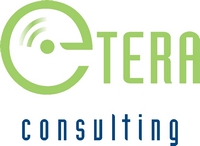- You are here:
- Home »
- TECHNOLOGY »
- “Defending the eDiscovery Process”: with eTERA Consulting and Venable LLP
“Defending the eDiscovery Process”: with eTERA Consulting and Venable LLP
Webinar: “The Defense of Process: How Legal Knowledge, Metrics and Transparency Play a Role”
18 July 2012 – eTERA Consulting and Venable LLP hosted an excellent webinar today that addressed how transparent reporting and metrics help corporations and law firms manage and defend the complexities of the electronic discovery process. As most readers know, eETERA Consulting was nominated by the National Law Journal as the Best End to End Litigation Consulting Firm in the U.S.
Speakers included eTERA’s Vice President of E-Discovery and Adjunct Professor at Georgetown University, Todd Haley; and Edwin Larkin, partner at Venable LLP.
The webinar was part of eTERA Consulting’s ongoing series of training and education initiatives to help clients stay abreast of critical issues surrounding electronic discovery and technology.
With the advent of legal cases that are speaking directly to the use of technology to manage data (i.e., predictive coding) and legal cases addressing concerns about the defense of specific processes, it was a well times webinar. The panel attempted to help listenes understand the cases surrounding the use of technology and understand solutions that make it easier for legal teams to know how their data is being managed. Topics included:
• How the Federal Rules address technology concerns
• What do the Sedona Principles say about legal requirements
• Why metrics are important
• How predictive coding is more than just a fad
• When does transparent processing make a difference
• How great data management saves time and lowers costs
As Edwin Larkin of Venable said during the webinar “as more and more data is created litigants are going to face greater challenges in collecting and producing electronically stored information in connection with litigation. And even in a cooperative atmosphere defense of process is very important to explain to the other side what was done, what was found and why certain decisions were made. The use of metrics allows you to put real numbers and information in front of you adversary which can save you both work and expense in the discovery process.”
Further into the program Todd Haley said “predictive coding is asking the computer to use metrics that it analyzes to assist review. While a ‘hot’ topic in legal right now, predictive coding and analysis has existed for over 10 years” which he has discussed at length in a previous post (click here). He went on to say “predictive coding enhances the ability to review a large amount of documents in a relatively short amount of time. In one client project involving 1.3 million documents, the actual review time was reduced from the normal 6-8 months and completed in less than one month.”
To listen and watch the recorded web seminar and to view the web seminar in PDF format click here.


